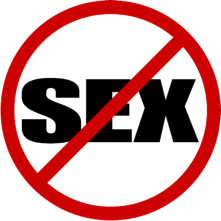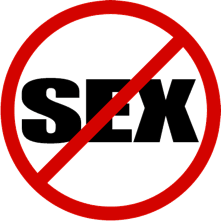 Last night, we reported on a new restriction that was being applied to Apple’s App Store: no more applications with “overtly sexual content”. At this point, the exact nature of that ban is unclear. But it’s a policy shift that may alarm many developers — even those whose applications have nothing to do with sexy content.
Last night, we reported on a new restriction that was being applied to Apple’s App Store: no more applications with “overtly sexual content”. At this point, the exact nature of that ban is unclear. But it’s a policy shift that may alarm many developers — even those whose applications have nothing to do with sexy content.
First, a little background: we’ve seen numerous reports about applications that have been pulled from the App Store for featuring sexual content, but there are still plenty of apps that have names like “Magic Boobs”. I reached out to Apple PR to ask if they’d enacted a sweeping policy change that could affect many applications, or if they were only removing a handful of applications with especially explicit content. This morning an Apple spokesperson sent back a response. It doesn’t have any answers:
“Whenever we receive customer complaints about objectionable content we review them. If we find apps that contain inappropriate material we remove them from the App Store and request the developer to make any necessary changes to their apps in order to be distributed by Apple.”
I’ve asked Apple to further clarify their stance — does this only apply to applications that have received complaints? Do they have any plans to specify what exactly makes an application too sexy for the App Store? I’ll be surprised if they get much more specific.
Now, it’s true that many of these “sexy” applications were little more than spam, featuring titillating titles, perhaps a handful of sexy photos, and little else. There were some applications that included more functionality, but it’s safe to say that the average quality of the applications on the App Store has almost certainly improved because of the new ban. But it’s still a disturbing move on Apple’s part.
Most worrying is that “sexy” applications were already blocked at one point until Apple specifically changed its policies to begin letting them in. It was only a little over a year ago that the words “Boobs” and “Booty” in an application’s description weren’t allowed. But Apple made the conscious decision to lift that ban. In effect, Apple sent a message to developers that on a platform where the rules are nebulous and anything innovative is risky, these applications were safe. Now it’s changing its mind.
Since the App Store first launched in July 2008, Apple has gradually loosened restrictions on what kinds of applications it would approve. In December 2008, it started approving “humor” apps like iFart and Pull My Finger, as well as an NC-17 rating for adult applications. And over the last year, it began allowing more and more sexy applications — it even began offering parental controls with the iPhone 3.0 software update to help parents keep what their kids accessed in check.
Now Apple is moving in the other direction, and it’s setting a scary precedent. It’s showing that it’s comfortable throwing out applications that developers have spent their time and money building, without even bothering to give them advance notice. It’s one thing to have an application get denied when it’s first submitted — it’s another thing entirely to have the rug pulled out from under you once your app has thousands of downloads and customers. Is Apple going to start blocking apps like Qik if it builds its own live streaming service? Are iFart’s days numbered? Could Apple simply ban all NC-17 rated applications because too many parents complain?
And then there’s an entirely different issue: censorship. Apple is now one of the world’s largest gatekeepers to content, with a store that encompasses music, video, applications, and soon, books and magazines. And it’s shown before that it’s a totally inconsistent hypocrite when it comes to which content it’s willing to sell. Have exposed breasts in an R rated move? Sell it! Jiggling boobs in a silly iPhone application? Banned. Apple previously blocked an iPhone application that allowed users to access the Kama Sutra. What happens if it gets too many complaints about iTunes making it too easy to purchase books and magazines with sexual content?
